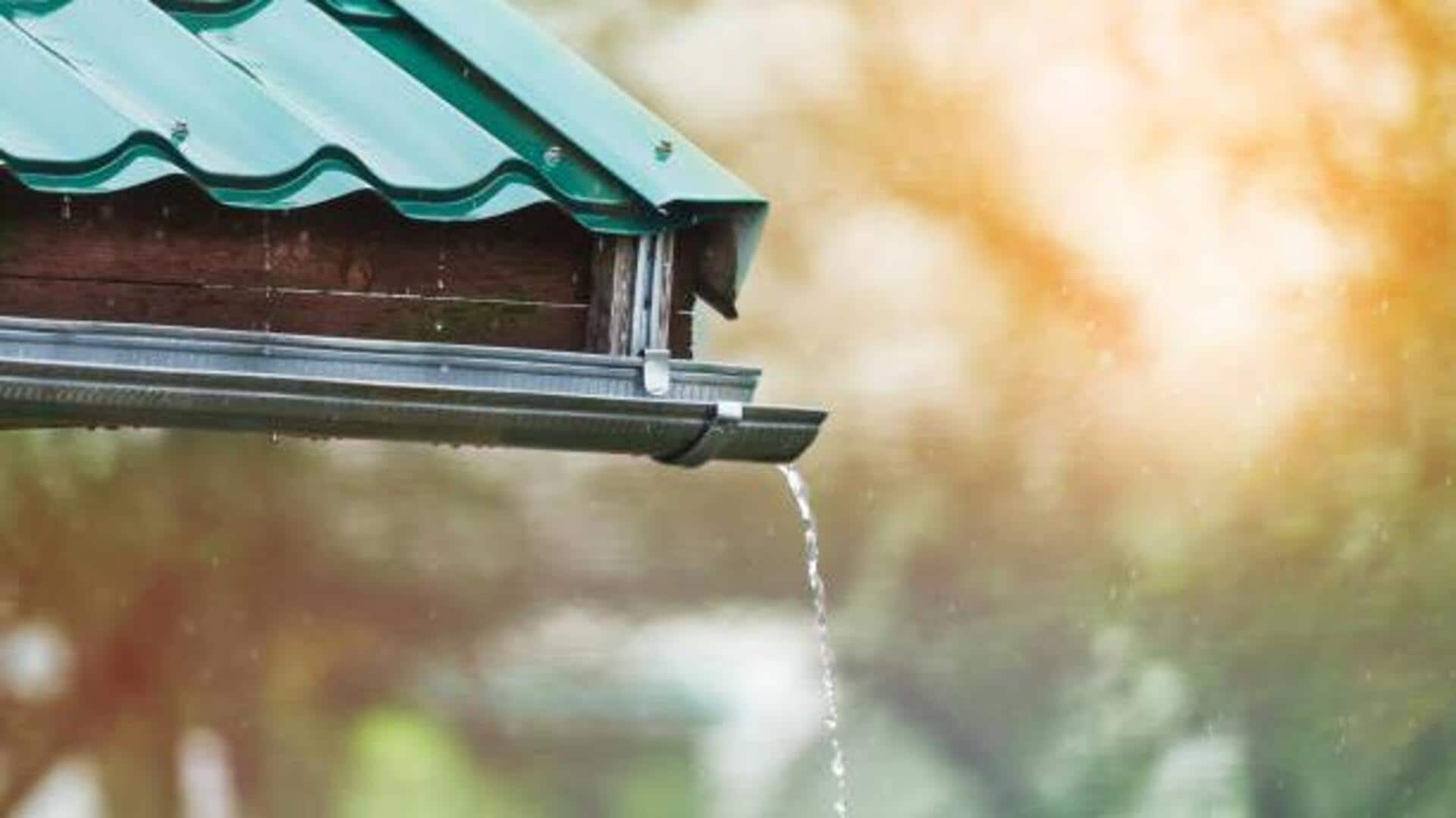
5 rainwater harvesting hacks for your garden
What's the story
In parts of Africa, water scarcity even puts a damper on gardening. However, rainwater harvesting reduces dependence on municipal supplies, thereby reducing bills. It also supports sustainable gardening and conserves the environment by minimizing runoff and soil erosion. This guide offers practical tips for effective rainwater use in gardens.
Tip 1
Install efficient rain barrels
Rain barrels are a simple yet effective way to collect rainwater from rooftops. These containers can be placed under downspouts to capture runoff during rainfall. Opt for barrels with a capacity of at least 200 liters to maximize collection potential. Ensure that the barrels have secure lids to prevent mosquito breeding and debris contamination. Regular maintenance, such as cleaning gutters and checking connections, will ensure optimal performance.
Tip 2
Utilize gravity-fed irrigation systems
Essentially, gravity-fed irrigation systems leverage the natural slope of the land to distribute water from storage tanks or barrels directly to plants, eliminating the need for pumps or electricity. Since this method is both cost-effective and energy-efficient, it works best for small-scale gardens in rural areas. Simply place hoses or pipes along garden rows to ensure even distribution of water across your plants.
Tip 3
Implement drip irrigation techniques
Drip irrigation systems provide water directly to plant roots through a series of tubes with emitters placed at regular intervals along their length. This ensures that evaporation losses are kept to a minimum and each plant receives sufficient moisture without being overwatered. Drip systems can prove particularly useful in arid regions where saving every drop of water is important.
Tip 4
Incorporate mulching practices
Mulching is the practice of covering the soil surface with organic matter such as straw or leaves to retain moisture, suppress weeds, and improve soil health. By lowering evaporation rates, mulching keeps the soil consistently moist between watering sessions with the harvested rainwater. Also, as the mulch decomposes over time, it enriches the soil with nutrients vital for plant growth.
Tip 5
Monitor water usage regularly
Regularly monitoring your garden's water usage can help you identify areas where you can be more efficient, ensuring that your plants are receiving just the right amount of hydration. This way, you can minimize your reliance on external water sources (which may even help you save on costs). By taking a proactive approach, you can ensure optimal water management for a successful and eco-friendly gardening experience.